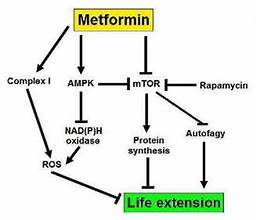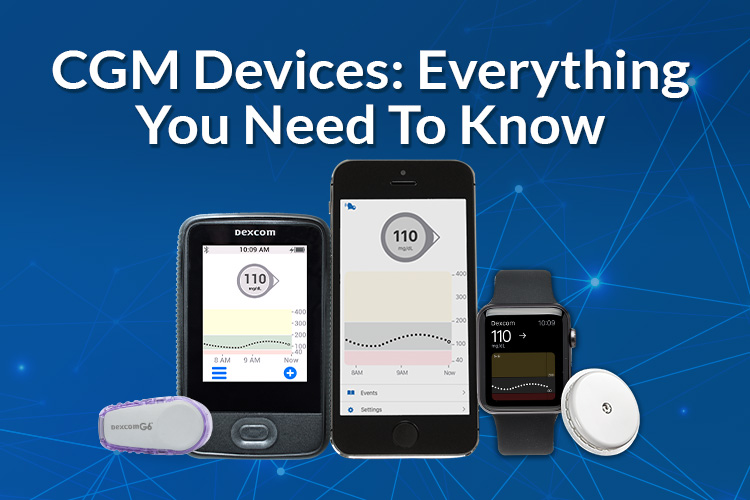
The GLP-1 Revolution: A Game-Changer in Modern Medicine

 919-999-0831
919-999-0831



Susan D. Denny, MD, MPH

Welcome to this month’s Functional Medicine newsletter, where we delve into the fascinating topic of Metformin, a medication commonly used for diabetes management, and its potential benefits for longevity. While Metformin has long been recognized as an effective treatment for diabetes, recent research suggests that it may have broader implications for promoting overall health and extending lifespan. Join us as we explore the scientific evidence and discuss the exciting possibilities surrounding Metformin’s role in longevity.
Metformin and Diabetes Management
Metformin is a medication primarily used to manage type 2 diabetes. It works by reducing glucose production in the liver and increasing insulin sensitivity, leading to improved blood sugar control. However, emerging studies indicate that Metformin’s benefits extend far beyond diabetes management alone.
Metformin and Longevity Research
We encourage you to explore these references to gain a deeper understanding of the research surrounding Metformin’s potential benefits for longevity and age-related diseases.
Consulting a Healthcare Professional
It is important to note that while Metformin shows promise in longevity research, its use beyond diabetes management is still being investigated. Before considering Metformin or any other interventions for longevity purposes, it is crucial to consult with a healthcare professional who can assess your individual circumstances and provide guidance based on the latest scientific evidence.
Remember, longevity is a multifaceted topic, and adopting a comprehensive approach to healthy living, including balanced nutrition, regular physical activity, stress management, and maintaining a supportive social network, is key to promoting overall well-being and healthy aging.
Wishing you a vibrant and resilient journey towards optimal health and longevity!
Yours In Health,
Susan D. Denny, MD, MPH

Sara Yadlowsky, FMHC

Many of us have too much glucose (blood sugar) in our system and are not aware of it. Glucose enters our bloodstream mainly through the sweet or starchy foods we eat. The conventional medicine community has taught for many years that unless you are diabetic or pre-diabetic your blood sugar levels are not important. However, more recent, cutting-edge science and the increased use of continuous glucose monitors (CGM’s) have proven that everyone needs to pay more attention to glucose levels. A CGM is a small device that attaches to the back of your arm and monitors blood glucose on a continuous basis. You can obtain a CGM through a prescription or purchase one online through websites such as Signos, Veri and Nutrisense. I wore a CGM for several weeks recently and found it very informative in understanding how my food choices affect my blood sugar levels. For example, I realized how breaking my fast with a low carb meal was very helpful in avoiding the spike that can occur after fasting for 16 hours.
Symptoms of uncontrolled glucose can include fatigue, food cravings and brain fog. Long term effects of uncontrolled glucose can include hormonal dysfunction, acne, wrinkles and infertility. Over time the development of type 2 diabetes, cancer, dementia, PCOS and heart disease can occur.
There are several easy modifications you can make to your diet that flatten the glucose curve that occurs after eating. These modifications include:
There is a new book out about blood glucose called The Glucose Revolution written by Jessie Inchauspe. The author goes into depth about the huge impact glucose has on our health. She then presents several ways to control our blood sugar more effectively. The book also includes tips on how to handle cravings, better choices in alcohol and how to read ingredient labels.
Jessie Inchauspe has an Instagram account (glucosegoddess) that continues the education on controlling glucose and gives lots of actional advice. This may help provide you with some motivation to jump start a healthier lifestyle in 2023. Our health coaches and physicians at Carolina Total Wellness are also always available to provide you with personalized advice on improved blood sugar control.
In health,
Sara Yadlowsky, FMHC

Functional medicine is a science-based health care approach to assess, prevent and treat complex chronic disease.
![]() Learn More
Learn More
After a brief allergy test, you can begin sublingual immunotherapy (SLIT), or allergy drops under the tongue. No more allergy shots!
![]() Learn More
Learn More
Learn how to prepare for your visit and what to expect at your initial consultation and at your follow-up visits with our office.
![]() Learn More
Learn More